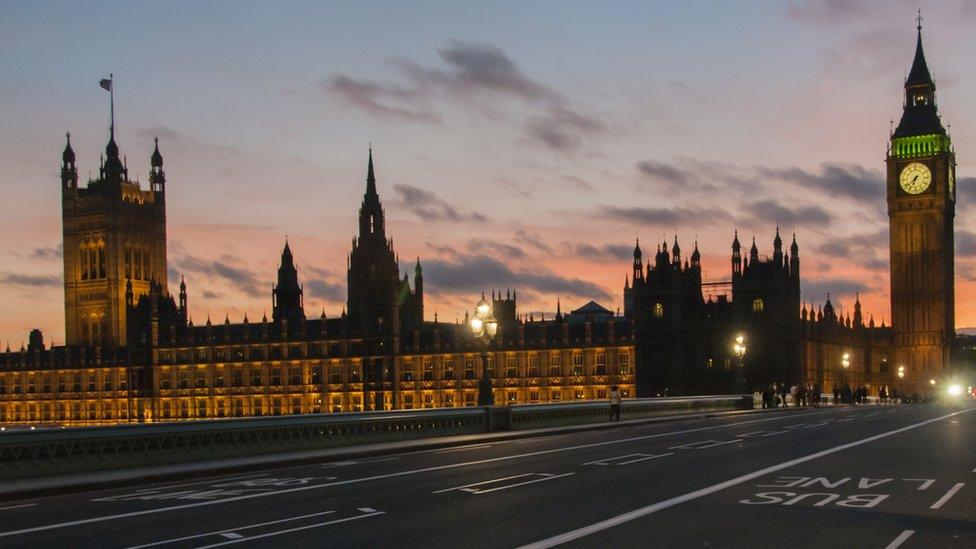Devolution: Councils in Norfolk, Suffolk and Essex say local control is best
- Published
- comments

The first steps have been taken towards devolution in the eastern region. Norfolk, Suffolk and Essex councils have all told the government they want more of a say over local spending, planning and economic development.
Even though the plans are very much in the early stages there have already been a few rows, so it's clear many months of negotiation lie ahead.
All the bids talk about district and county councils working more closely together along with local business groups. Some hint at cross-border partnerships.
The Suffolk bid looks the most impressive so far. Its glossy publication, Working for a Better Future, sets out the benefits which devolution could bring: 70,000 new homes by 2031, the creation of 5,000 new apprenticeships and the creation of better jobs to help reduce money spent on benefits.
It talks about a joined up strategic Suffolk plan and setting up a local employment service to administer universal credit. It also wants the county, rather than Whitehall, to decide how European structural funds and money for transport are spent and it asks for local control of health services.
In the bid's introduction Jennie Jenkins, the leader of Babergh Council, external, said: "We have chosen to set aside our differences and focus on what's important - making people's lives better."
The Greater Essex bid also has ambitious plans. Signed by all 15 authorities, it aims to create the fastest growing economy outside London, increasing economic output from £32.5bn to £60bn and increasing exports by 100%.
County Council leader David Finch said: "For too long the decisions which impact on the needs and aspirations of the people and businesses in Essex have been taken in Whitehall. With our local knowledge and democratic accountability we can do better."
Power sharing
Norfolk's bid talks about: "An exciting proposal that will transform the economy of East Anglia".
It is more vague about how devolution would work, but among its suggestions is the creation of a productivity commission which would look at plugging the skills gap, particularly in rural areas.
The Norfolk bid also talks about a wish to work more closely and share powers with Suffolk and perhaps even Cambridgeshire over things like flood protection and the development of road and rail links.
At the moment all the councils are pushing a county only solution but they may have to consider something more ambitious.
There is concern that compared to London and the so-called Northern Power House, the government may feel that Essex, Suffolk and Norfolk are too small and giving devolution to individual counties may not be very efficient.
That's why there's a lot of talk about counties merging in some form or other. A county of East Anglia may suit ministers but what would happen to local accountability?

Could services in the city of Norwich run better under a devolution plan?
Other questions are up for discussion: If councils are sharing services do we really need district and county councils?
What happens in places like Norwich, Ipswich and Southend-on-Sea, where there are city deals? Could more services be run locally instead of from Whitehall?
A new start?
This could be the start of something big, leading to a change in the way our local government is structured, perhaps even in how we're governed.
Some people in local government are concerned.
We understand there were several heated discussions leading up to the publication of these bids. There are likely to be many more in the months to come.
Devolution is going to be the buzz word for the next few years.
The government is keen to encourage regional autonomy, while councils are having to make big savings to their budgets and some believe the two are not unrelated - relieving Whitehall of the burden of wielding the axe.
There are plenty of people who think it would benefit the east, but coming up with plans that will be acceptable to government, councils and local voters is likely to take some time.